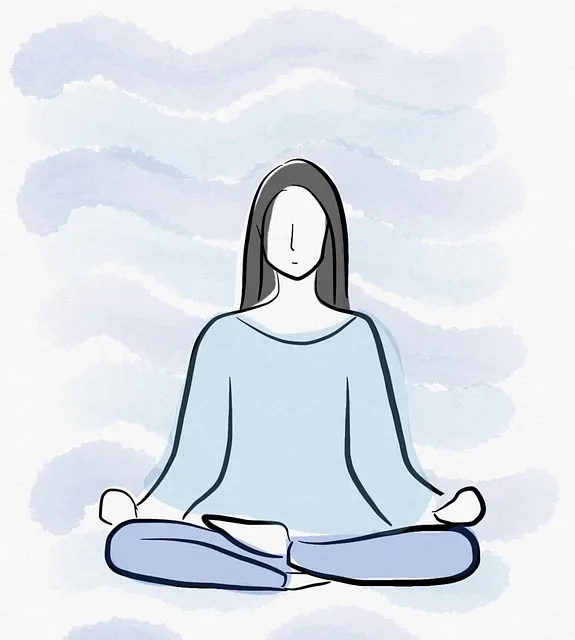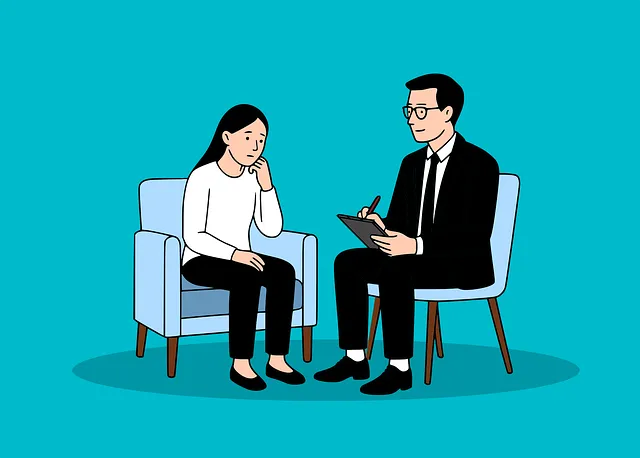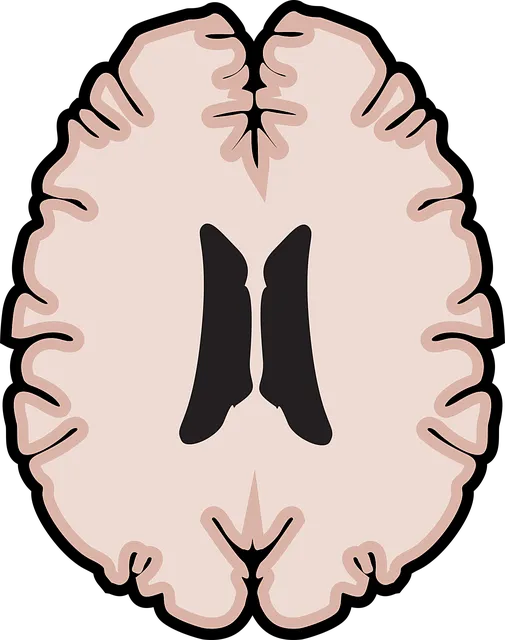The Northglenn Kaiser Permanente mental health appointment center prioritizes group dynamics for effective mental health support. Group settings facilitate connection, experience-sharing, and mutual learning in a safe, supportive atmosphere. Facilitators use techniques like Mindfulness Meditation and Crisis Intervention to create inclusive spaces fostering Mental Health Awareness and collective healing. Strategies include clear boundaries, active listening, open communication, anonymous question boxes, role-playing exercises, and positive reinforcement. Specialized approaches for trauma survivors enhance empowerment. Active engagement through icebreakers, interactive exercises, self-care modeling, and open discussions enriches the mental wellness experience. Effective discussion leadership fosters non-judgmental sharing and empathy. Creative activities like art, music, dance, and storytelling offer unique stress management strategies, transcending traditional talk therapy, benefiting both individual and collective mental health.
Mental wellness group facilitation is a powerful tool for enhancing well-being, as evidenced by programs at the Northglenn Kaiser Permanente Mental Health Appointment Center. This article explores effective techniques for facilitators navigating complex group dynamics at this leading healthcare provider. From creating safe spaces to engaging participants and fostering meaningful discussions, we provide insights tailored to the unique needs of mental health groups. Discover how creative activities can further enrich interactions, offering a holistic approach to healing and growth within the Northglenn Kaiser Permanente community.
- Understanding Group Dynamics for Effective Facilitation at Kaiser Permanente Northglenn
- Building a Safe and Supportive Environment: Key Techniques for Mental Health Groups
- Engagement Strategies: How to Foster Active Participation in Therapy Sessions
- Leading Effective Discussions: Guide for Facilitators at the Mental Health Appointment Center
- Incorporating Creative Activities: Enhancing Mental Wellness Through Group Interactions
Understanding Group Dynamics for Effective Facilitation at Kaiser Permanente Northglenn

At Kaiser Permanente Northglenn’s mental health appointment center, understanding group dynamics is key to effective facilitation. Group settings offer a unique opportunity for individuals to connect, share experiences, and learn from one another in a supportive environment. As a facilitator, recognizing and navigating these dynamics is crucial. For instance, promoting active participation while ensuring every voice is heard fosters an inclusive atmosphere, enhancing the therapeutic benefits.
By incorporating techniques like Mindfulness Meditation and Crisis Intervention Guidance, facilitators can create a safe space where Mental Health Awareness flourishes. This holistic approach allows members to build upon each other’s insights, fostering a sense of community and collective healing. Effective facilitation in these groups demands adaptability, empathy, and a deep understanding of the diverse needs present, ultimately enriching the mental wellness journey for all participants.
Building a Safe and Supportive Environment: Key Techniques for Mental Health Groups

Creating a safe and supportive environment is paramount for effective mental health group sessions at Kaiser Permanente’s Northglenn appointment center. Techniques such as establishing clear boundaries, promoting active listening, and fostering open communication help individuals feel comfortable sharing their experiences. Group facilitators should encourage participants to build trust among themselves, ensuring that everyone feels heard and respected.
Using strategies like anonymous question boxes, role-playing exercises, and positive reinforcement can enhance social skills training while boosting confidence. For those dealing with trauma, specialized techniques like trauma-focused group therapy and coping mechanisms tailored to individual needs are crucial. These approaches not only support mental wellness but also empower participants to navigate their challenges in a supportive setting.
Engagement Strategies: How to Foster Active Participation in Therapy Sessions

In facilitating mental wellness groups at Northglenn Kaiser Permanente’s mental health appointment center, engaging participants actively is key to creating a therapeutic environment that encourages progress and connection. Group leaders should employ diverse strategies to foster active participation, ensuring every member feels valued and empowered. One effective approach is incorporating icebreakers and interactive exercises tailored to the group’s themes. For instance, starting with a mood management discussion might involve asking members to share their current emotional state through art or music, promoting self-expression and engagement.
Additionally, facilitators can model and encourage self-care practices during sessions. By demonstrating techniques like mindful breathing or journaling prompts, participants learn practical tools for crisis intervention guidance. This not only enhances their ability to manage their moods but also creates a supportive atmosphere where sharing experiences becomes more manageable. Active participation is further stimulated through group discussions, where members can offer insights, share coping strategies, and gain from one another’s perspectives, ultimately enriching the overall mental wellness support experience at Northglenn Kaiser Permanente.
Leading Effective Discussions: Guide for Facilitators at the Mental Health Appointment Center

Leading effective discussions is a vital skill for facilitators at the Northglenn Kaiser Permanente mental health appointment center. It requires a balance between guiding the conversation and allowing participants to express their thoughts openly. Facilitators should create a safe, non-judgmental environment where everyone feels comfortable sharing their experiences and perspectives. Using empathy building strategies, such as active listening and open-ended questions, can foster meaningful interactions.
To enhance these discussions, facilitators at the Northglenn Kaiser Permanente mental health appointment center can employ mental health policy analysis and advocacy techniques. Encouraging participants to share insights on relevant policies and practices promotes a collective understanding of current challenges and potential solutions. By integrating communication strategies that emphasize clarity, respect, and inclusivity, facilitators ensure that every voice is heard and valued, ultimately leading to more productive and impactful conversations.
Incorporating Creative Activities: Enhancing Mental Wellness Through Group Interactions

Incorporating creative activities into group facilitation sessions at Northglenn Kaiser Permanente mental health appointment center can significantly enhance participants’ mental wellness. Art, music, dance, and storytelling are powerful tools that encourage self-expression, foster empathy among members, and create a safe space for emotional exploration. These activities transcend traditional talk therapy by engaging multiple senses, promoting mindfulness meditation, and offering unique perspectives on managing stress.
Through creative outlets, participants can build empathy-driven connections with one another. Stress management workshops organized within these sessions teach actionable strategies to cope with daily pressures, fostering a supportive environment that extends beyond the appointment center. By intertwining creativity and mental health care, the Northglenn Kaiser Permanente approach ensures engaging and impactful group interactions that benefit both individual and collective mental wellness.
The comprehensive techniques discussed, tailored for the unique setting of the Northglenn Kaiser Permanente mental health appointment center, equip facilitators to create dynamic and supportive group environments. By understanding group dynamics, fostering active engagement, leading insightful discussions, and incorporating creative activities, mental wellness groups can become powerful tools for healing and transformation within this healthcare context.






